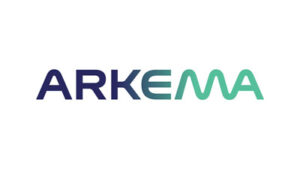Cefic recognizes Arkema for advancing circularity and climate neutrality
Colombes, France – Cefic, the European Chemical Industry Council, has recognized 23 companies and national associations for their exceptional contributions to advancing the ambitions of the Antwerp Declaration through the 2024 European Responsible Care Awards. Arkema emerged as the winner in the “Time for Change – Circularity and Climate Neutrality” category with its Optim’O program and received a commendation for reducing the carbon footprint of its bio-based Polyamide 11 materials.
“Arkema is proud to have won the ‘Circularity and Climate Neutrality’ category thanks to its Optim’O project and the work done to reduce the carbon footprint of Bio-Based Polyamide 11 materials. Since its creation, Arkema has been dedicated to being a responsible manufacturer. Therefore, we are committed to the climate and to reducing the environmental footprint of our business activities,” said Emmanuelle Bromet, VP of Sustainable Development at Arkema.
Launched in 2016, the Optim’O program encompasses all water-management activities across the group, particularly those geared towards consumption reduction, recycling, COD reduction, and water-stress scenarios. It is based on a comprehensive, cross-functional system, including a diagnostic phase, indicator monitoring, technical responses, and the introduction of communications and water management practices recognized by international organizations.
Optim’O has been extended to all Arkema’s industrial sites worldwide. Between 2016 and 2023, around 130 million cubic meters of water have been saved globally, mainly in France. Environmental emissions of nearly 10,000 tons of COD have also been avoided over this period.
Arkema has undertaken an ambitious journey to reduce the carbon footprint of its bio-based high-performance Polyamide 11 materials. A major milestone of this initiative is a long-term agreement with ENGIE, started in January 2023. The agreement involves the supply of 300 GWh/year of renewable biomethane in France. Derived entirely from renewable castor seeds, Rilsan® Polyamide 11 is 100% segregated bio-based. By using more renewable electricity sources and making several additional energy efficiency improvements at its production sites, Arkema aims to achieve a carbon footprint of 1.3 kg CO2e/kg for the global production of its bio-based Polyamide 11 chain by early 2025, which is 80% lower than conventional fossil-based polyamides.

